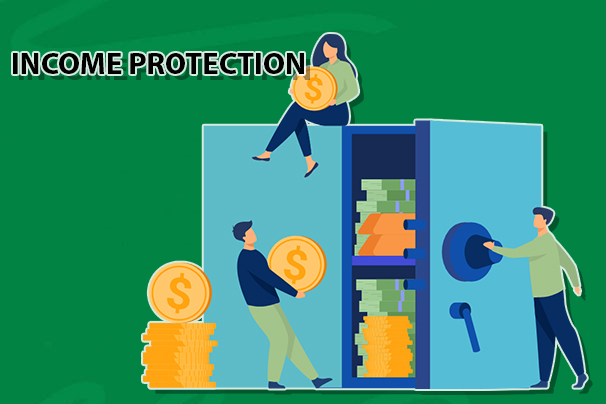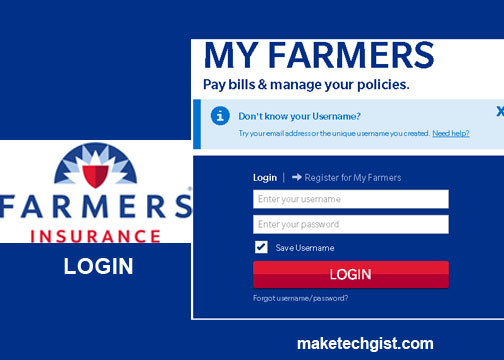Income protection may be able to provide stability for you and your family in the event of illness or job loss. It is a type of insurance that pays you if you are unable to work due to sickness, injury, or retirement. In addition, it comes in a variety of forms and provides both short- and long-term coverage.

Moreover, it is also known as permanent health insurance. If you are temporarily unable to work, these payments might assist you in continuing to cover your basic expenses. It can pay for costs such as:
- Rent and mortgage payments
- Bills for utilities
- Basic living expenses for daycare
How Income Protection Works
After your plan is activated, a monthly payment will be due. You will receive a monthly payment if an illness or accident prevents you from working. Additionally, your monthly income is used to support you in this way. Until the conclusion of the term or until you retire, your coverage will remain in effect.
However, it will not be possible for you to choose coverage for your entire gross salary. Moreover, you should be able to choose up to 60% of your gross compensation depending on your income.
A waiting period will also be decided upon by you and your insurance. Another name for this is the postponed period. It’s the amount of time after an illness or injury that your coverage is paid out. You can choose the length of the postponed period, and it usually corresponds with your sick pay.
Furthermore, your income protection benefit will begin when your employer stops paying you for sick days missed. For instance, you might set your postponed term to six months if you received ill-pay for six months. This is the time to make an income protection insurance claim. The premium will be more reasonably priced the longer the postponed time.
Types of Income Protection
Income protection insurance comes in two primary varieties: short-term and long-term.
Short-term Income Protection
For a predetermined amount of time, short-term income protection covers you if you become ill and are unable to work. The duration varies, but it often lasts one to two years.
Long-term Income Protection
Another name for long-term income protection is long-term sickness insurance. It continues to cover you until the conclusion of the plan’s term. This is often established at retirement.
How Much Does Income Protection Cost
The insurance and your situation will determine how much you pay in premiums each month. Moreover, policies for income protection offer coverage for a broad variety of diseases, ailments, and circumstances. However, it’s crucial to evaluate the offers that various insurance have to offer.
The following are the factors affected by the cost
- Your age
- Occupation
- Level of income
- The proportion you would want to set aside to cover
- The deferred time until the policy pays out
- The range of eligible illnesses and injuries.
- Your health, including your weight and family medical history.
In addition, a guaranteed premium stays fixed for the duration of the policy, and a normal premium, which the insurer may raise over time. Although guaranteed premiums may initially cost a little bit more, many consumers like the certainty of knowing their future costs.
Two Ways to Protect Your Income
Select from two varieties of income protection insurance to safeguard you if a sickness or injury prevents you from working.
Illness and injury insurance
This basic insurance pays a monthly payment if an illness or injury prevents you from working. Additionally, its benefit is payable each month in arrears following a four-week waiting period. Depending on the type of coverage you require, premiums as low as £6 per month can be paid. Furthermore, request a straightforward online quotation right now to avoid consulting a financial advisor.
Income Protection Benefit
Full coverage pays a monthly payment if a sickness or disability prevents you from working. The monthly benefit is protected from inflation by a choice of waiting periods, restricted benefit periods, and a growing plan. In addition, financial advisors offer Income Protection Benefits for purchase.
What Does Income Protection Covers
Policies for income protection will pay for any kind of sickness or injury. But only if cutting back on hours or taking time off work results in a loss of revenue. Situations like:
- Tumors
- Strokes
- heart attacks
- musculoskeletal disorders
- incapacitated by getting a mental illness that necessitates time away from work
To ensure that you are protected for something in particular, make sure the policy covers it.
How Much will I get If I File a Claim?
You will get up to 75% of your pre-disability income which is the money you were making before becoming disabled. Pre-disability income is often defined as your income for each successive 12-month period in the three years before disablement. Additionally, the amount you are paid for a claim cannot exceed the amount you have insured.
For instance, assume that your current income is $50,000 you can cover up to 75% which is $3,125 per month. Although your premiums are tax-deductible, the IRD taxes the claim payouts you receive as income. It’s crucial to evaluate the quantity of your coverage and adjust it to fluctuations in your income.





